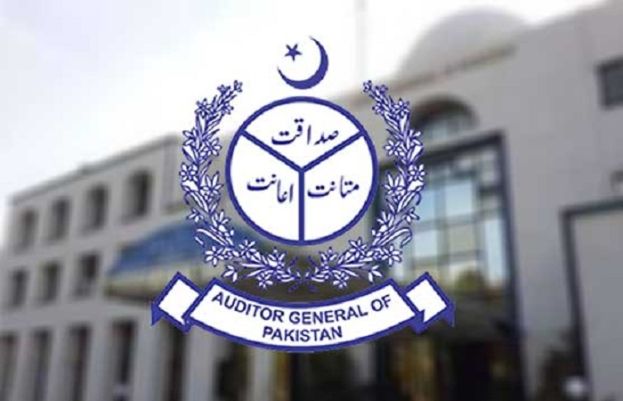
The state audit of the government's expenditure was released last week.
Examining these three months, the audit report finds irregularities observed during procurements by the National Disaster Management Authority (NDMA), disbursements through the government’s poverty alleviation program, managements by the defense services and the Utility stores, amongst other findings.
Here are key highlights from the report:
Reporting to NAB
The NDMA which was responsible for the procurement of equipment and medical supplies during the coronavirus pandemic was allotted Rs33,248mn.
The audit report states that as per the National Accountability Ordinance, 1999, all government departments have to furnish to the National Accountability Bureau (NAB) a copy of any contract with a minimum monetary value of Rs50mn or more.
Still, the NDMA entered in 55 contracts with suppliers and firms which carried a monetary value of Rs50mn and copies of these contracts were not provided to NAB.
Buying from China
Till June 2020, the NDMA used up to $62,270,874 to procure coronavirus-related equipment from China.
But no minutes of these meetings were recorded, the report states. Neither was a proper record of these proceedings maintained.
The audit also observed that NDMA procured some ventilators at higher cost from the Chinese company, Sinopharm Fortune Way. The difference in price per ventilator was $7,100.
“Procurement of the same equipment at the same time at a higher rate resulted in a loss of $994,000 to the public exchequer,” the report revealed.
A further 80 ventilators were bought, and the Chinese firm they were brought from was overpaid in excess payment of $700,000. The NDMA told the audit team it has requested the company for a refund, through the Chinese embassy.
Construction during Covid-19
China donated $4mn for the construction of a 250-beds Isolation Hospital and Infections Treatment Center (IHITC) in Islamabad. For which, NDMA assigned the construction task to the Frontier Works Organization (FWO), which was provided Rs600mn in two tranches.
“During Audit it was observed that instead of utilizing the grant received from China meant for construction of IHITC, the NDMA utilized the Covid-19 funds for the construction of the hospital. Resultantly, the grant received from China is lying unutilized with NDMA,” the audit report reads.
Also, the report noted that the advance payment made to the FWO for the construction of the Center had not been adjusted by the NDMA till June 30, 2020. The audit recommended that the claims and payments vouchers be obtained from the FWO.
Missing GST
The NDMA procured various Covid-19 related items from different supplier firms, of which it was required to deduct General Sales Tax (GST). But the audit examined that the NDMA had not deducted GST from the bills of suppliers, who were not exempt from GST.
This caused the government a loss of Rs328.903mn in tax revenues.
Cash disbursements to the poor
The total allocated budget of the Benazir Income Support Program for Covid-19 for the financial year 2019-20 was Rs136,377.32mn to be dispersed amongst the poor most affected during the pandemic.
The audit observed that payments were made to relatively better-off beneficiaries “due to absence of any clear policy”.
Despite technical difficulties, like beneficiaries not receiving an SMS to withdraw funds, the audit also noted problems in NADRA and the government’s database, which led to payment to ineligible beneficiaries like government servants, pensioners, and their spouses or tax-payers with income more than Rs50,000 per month.
The report further expressed concern that 1,320,171 beneficiaries were awaiting funds at the time of the closing of the audit.
It was also highlighted that a total number of 26,555 beneficiaries from Punjab received Covid-19 cash grants of Rs12,000 and Rs9,000 from both BISP and Zakat Fund, respectively, which was irregular.
“Thus, an extra amount of Rs318,660,000 was irregularly disbursed, which is required to be recovered,” the audit recommended.
In addition, there were instances where fake biometrics were used to withdraw cash amounts in the name of a dead person.
Cash transfers amounting to Rs1,680,000 were fraudulently withdrawn.
Expenditures by Defence services
The report states that the Pak Emirates Military Hospital (PEMH) and CMA Rawalpindi did not provide records of their expenditure on account of Covid-19.
Separately, the Ministry of Defence allocated Rs200mn to Armed Forces Institute of Cardiology & National Institute of Heart Diseases from the Army budget for Covid-19. During the audit, it was observed that the entire allocation was spent on clearance of previous liabilities and procurement of medicines relating to heart diseases.
The report states that these funds should have been “surrendered so that the same could be utilized by the government on other urgent requirements for the pandemic.”
The audit report also pointed towards wasteful expenditures during the pandemic by the defence services. It noted that medical store items including Personal Protection Equipment (PPE), disposables, and medicines valuing Rs376.817mn were locally purchased, even though sufficient stock of the same items was already held with the formations.
During an audit of CMH Rawalpindi, it was noted that PPEs were purchased at higher rates by ignoring the lowest rates available, which resulted in a loss amounting to Rs27,923,656.
While a record of the hospital showed that PPEs received from COD Rawalpindi were more than the requirement and still lying-in stock, “which was not justified,” the report added. “Issuance of the excess quantity of PPEs resulted into a blockade of government's money amounting to Rs75.066mn.”
Another concern was that procurements made for the defense services did not deduct withholding tax, which cost the state a loss of Rs17.129 million.
from latest-news - SUCH TV https://ift.tt/32whePp

0 Comments